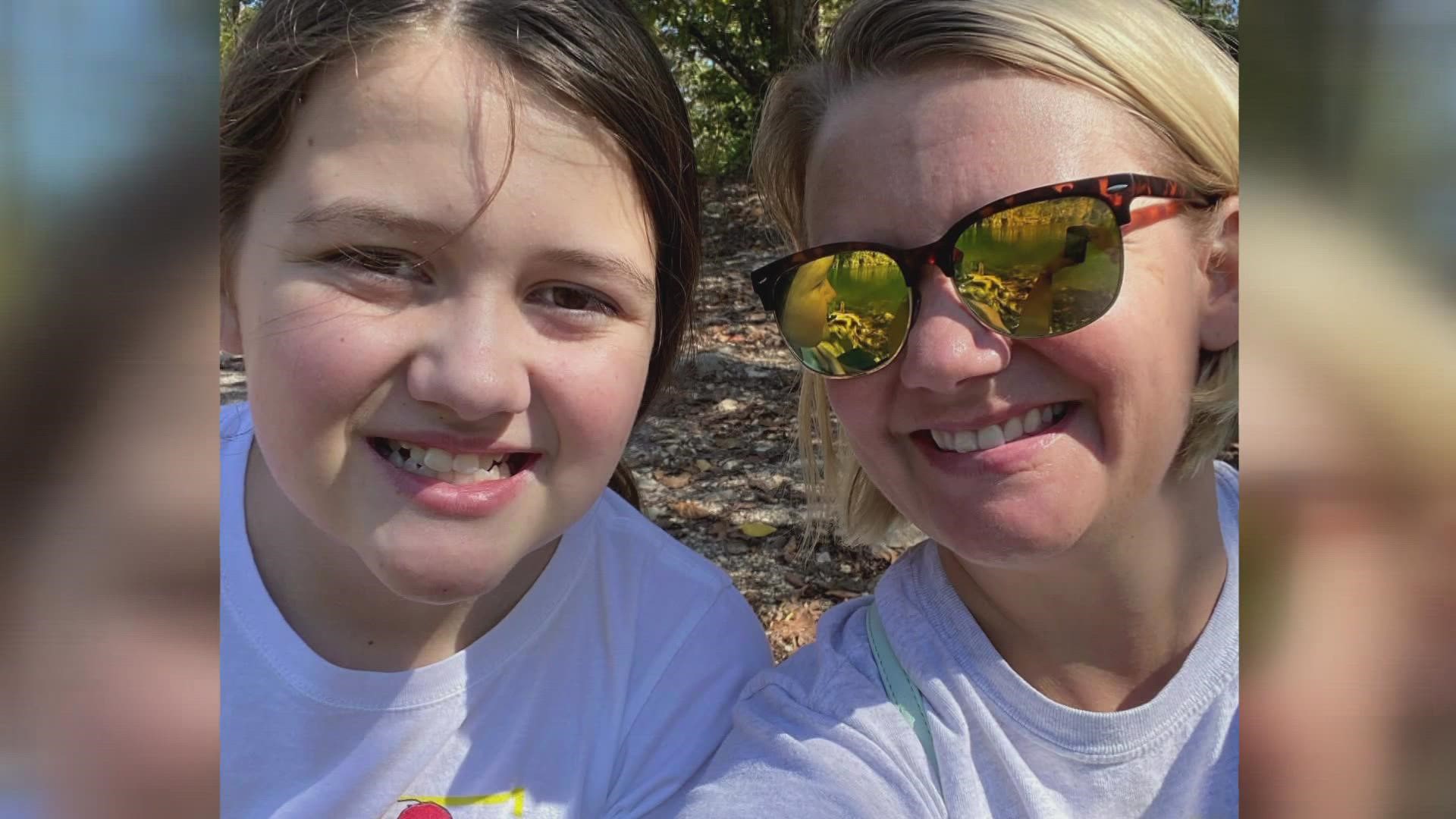KNOXVILLE, Tenn — Sarah Owens didn't know how to help her 12-year-old daughter, Abby, after the pandemic hit.
"It went from having a stomach ache when it was time to go to school to full-out panic attacks when we had to leave the house," Owens said. "She would sob all day at school, which in turn led to bullying because she's the kid in class that cries all the time. She refused to eat in public. She refused to use the restroom in public."
Owens was pulling Abby out of class several times a week and spending hundreds of dollars on therapy that wasn't working.
Abby missed more than a month of school, failing nearly every class as her symptoms spiraled out of control.
"After so many doctor's visits, I'm like, there's physically nothing wrong with her," Owens said.
Youth mental health at crisis levels
The ongoing stress, uncertainty and fear created by the COVID-19 pandemic has weighed heavily on our children and teens, and it's welling over into classrooms.
In 2021, the U.S. Surgeon General declared the decline in youth mental health a national emergency.
In its annual Kids Count Data Book, the Annie E. Casey Foundation looked at new numbers regarding the mental health of students across the country. Research found nearly 1 in every 10 children in Tennessee are diagnosed with anxiety or depression.
Counselors helping students
Abby's family moved to Knoxville where she started a new school.
That's when an observant guidance counselor picked up on her behavior.
Abby was put on a referral list to meet with a mental health liaison through a partnership between Knox County Schools and the Helen Ross McNabb Center, a mental and behavioral health center.
Masters-level mental health counselors give students additional support, covering all middle and high schools and offering services at 15 elementary schools.
The program has served 2,597 students since it launched in 2018.
"This is just really a way to access treatment more efficiently and for us to be able to respond and assist the school system," McNabb Center Regional Clinical Vice President Mary Katsikas said.
Abby was able to meet with her liaison after school and continued sessions via telehealth through summer break.
Now, she is a straight-A student.
"I saw an immediate change in her after three counseling sessions with the counselor. It was like a light bulb went off," Owens said. "We don't want to admit that our kids need help because it makes us feel like a failure makes us feel like a bad parent, but the only thing that is a failure is not asking for help."
McNabb Center expands reach
Earlier this year, the McNabb Center received a $1.1 million grant to create three crisis response teams for children in our area experiencing mental health crises in schools, detention centers and at East Tennessee Children's Hospital.
The school-based team helps with crisis intervention and uses mobile crisis units when necessary.
"It's such a relief to know that your child has a safe space where they can go and talk about these things, and you can address them, you can fix them at that point," Owens said. "She's just a completely different kid, and we just wouldn't be here today without them."
The McNabb Center Mobile Crisis Unit is available 24 hours a day.
For information call (865) 245-0070 or click here.

